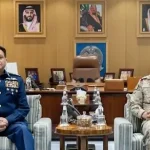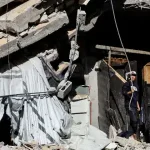The first anniversary of the Taliban taking over Kabul has been a dull celebration. Except for gun-toting Taliban soldiers, there was no celebration on the streets of Kabul or other cities; none of the general population was present to welcome the Taliban or express their joy at the shift. The Taliban should reflect on how long this “forced marriage” will persist because the general public lacks excitement. As a result of the theocratic state’s unwillingness to cooperate, the Taliban also experienced isolation on the world stage.
Today’s Afghanistan appears calm in comparison, yet people are still uneasy. Many people wish to emigrate. They don’t know what the future holds for them. By the end of last year, 3.5 million people were internally displaced within Afghanistan’s borders and more than two million had left the nation, according to the UN High Commissioner for Refugees.
It does not imply that the previous administration, presided over by Presidents Ashraf Ghani and Hamid Karzai, was any better. But there was a distinction: despite conducting faulty elections, Karzai and Ghani represented the popular will. They had international legitimacy and were accountable to the Afghan parliament. The Taliban lack both international credibility and the ability to speak for the public will. As a result, the average individual is suffering.
The Taliban’s supporters may claim that Karzai and Ghani were CIA-parachuted American puppets who were confined to the capital Kabul and mockingly dubbed “Mayors of Kabul.” They made very little effort to reach out to the populace while surviving on foreign donations, mostly from American and European sources. The American post-9/11 regime in Afghanistan was characterised by incompetence, nepotism, and corruption, which ultimately contributed to Ashraf Ghani’s demise without providing any meaningful resistance.
It is now widely accepted that the US administration had grown weary of the corrupt regime and its ineptitude before the fall of the Ghani government. As a result, in May of last year, it ceased providing food to the Ghani administration and allowed the Afghan National Defence Forces (ANDF) to fend for themselves. As a result, the ANDF was unable to repel the Taliban assault that started in Afghanistan’s north. Most provinces surrendered to the Taliban without a fight, as though they had been waiting for their arrival. To reduce their material and human losses in what President Trump would later call a “wasteful war,” the Americans rationally decided to leave Afghanistan. Therefore, leaving Afghanistan would result in an annual savings of $50 billion for the US.
The US did, however, have a backup plan for the Taliban after their exit. The US chose to discipline the Taliban outside Afghanistan rather than extend its presence. In addition to freezing $9.6 billion in Afghan funds in US and European banks, the US also placed restrictions on American banks that prevented them from conducting normal commerce with other parties. The Afghan economy has been all but immobilised by the Americans, which has caused a humanitarian disaster; about 90% of the population is now living in poverty. Ironically, professionals and other educated Afghans have left the nation, leaving the Taliban to run the country in a crude and unprofessional way.
The Taliban’s methods of managing international relations keep the nation in a state of flux while in power. The Taliban’s rigid adherence to human rights, particularly allowing secondary school girls to continue their education, and their refusal to form an inclusive government that includes religious and ethnic minorities, as demanded by the US and other European countries, are forcing the governments to withhold recognition of the Taliban regime. The Taliban’s attempts to gain international recognition have failed because no country is willing to offer legitimacy to a government that is unwilling to follow accepted international standards and procedures.
Two topics are of importance to Pakistan. The Tehrik-i-Taliban Pakistan (TTP) is present in Afghanistan, and its foot troops have started assaulting Pakistani security forces members along the Pakistan-Afghanistan border. The alarm has been aroused in Islamabad over the TTP cadres that have been seen in Swat and the surrounding districts, as well as the kidnapping of law enforcement officers. This would support claims that the Afghan Taliban are using the TTP as a negotiating tool to get Islamabad to make concessions, including recognising them.
Second, Islamabad should step up tensions as a result of India’s decision to formally open its embassy in Kabul. According to reports, the Taliban have given India permission to carry out the unfinished development projects it started before President Ghani’s administration was overthrown. Pakistan would not complain if India started working again on unfinished projects. India’s decision to reconnect with the TTP and Baloch rebels, though, may worry Islamabad. Given the history of the Mujahideen organisations, particularly that of Prof. Burhanuddin Rabbani, Pakistan would be sceptical of the Taliban carrying out Indian orders and allowing India to utilise Afghan land against Pakistan.
It is certain that India has historically supported the TTP with money and stoked discontent in the Balochistan area by using Afghanistan as a “second front” against Pakistan. India will violate an agreement made on the fringes of the SCO meeting in Dushanbe in September of last year, whereby the member states pledged not to favour any one country over another in Afghanistan if it continues with its “second front” approach. If the Taliban did not keep a close eye on Indian actions taking place on their territory, they would be repeating the error made by Prof. Burhanuddin Rabbani. In either scenario, the area will suffer greatly as a result of the Pakistan-India rivalry that used to exist in Afghanistan. Given the fact that there are currently more than a dozen active insurgencies across most of India, Pakistan may opt to repay India this time using the same currency.
Finally, no country in the twenty-first century, including Pakistan, can look to the Taliban’s rule for inspiration. Politicians should understand the significance of the nation’s freedom of expression and choice, as well. They should be aware that for more than 40 years, the events in Afghanistan have caused Pakistan to suffer greatly in terms of blood and wealth. But over time, our engagement in Afghan matters has only made Pakistan’s problems worse. To develop a moderate and progressive Pakistan that is peaceful both inside and outside its borders, it is prudent to keep a respectful distance from the forces of obscurantism.








